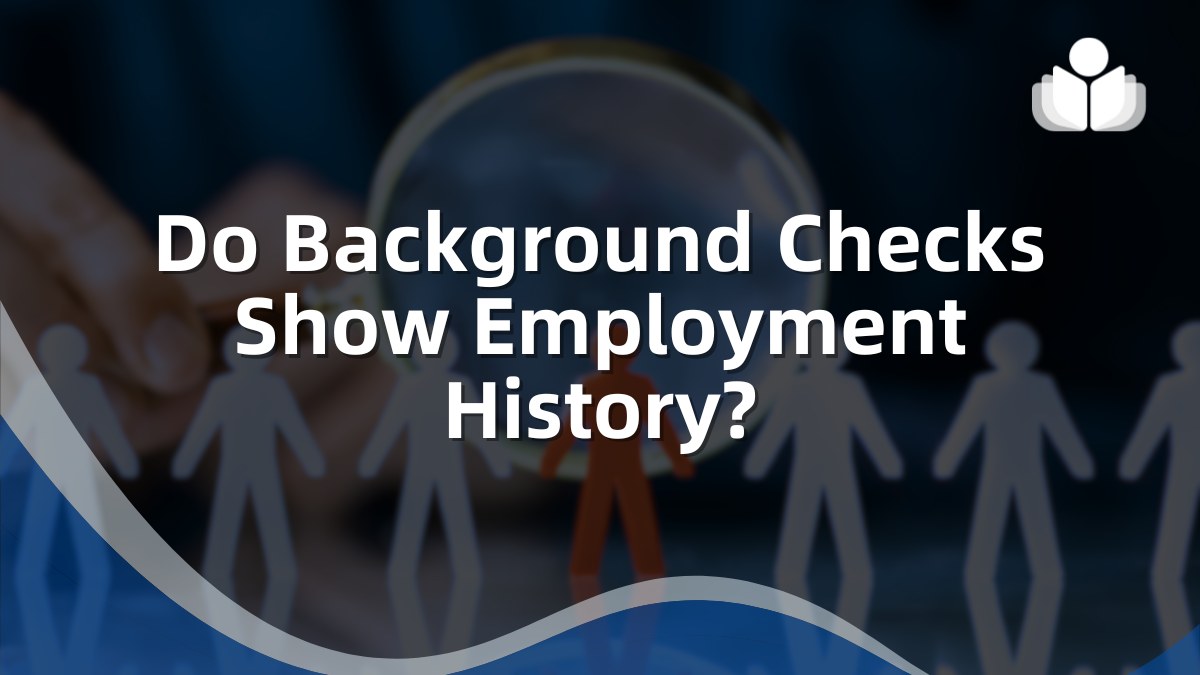Background checks are a standard part of hiring processes, rental applications, and other verifications. Many job seekers wonder whether their full employment history will appear in these checks and how employers access such information. This article explores what background checks reveal about employment history, the types of checks employers use, and what job seekers should know.
Do Background Checks Include Employment History?
Yes, background checks can show employment history, but the extent depends on the type of check conducted. Employment verification is a common part of pre-employment screening, allowing employers to confirm job titles, dates of employment, and sometimes reasons for leaving. However, not all background checks include a complete work history.
Types of Background Checks That Include Employment History
Employment Verification Checks
- Employers contact previous employers directly or use third-party agencies to confirm job details.
- They verify job titles, start and end dates, and sometimes salary (if legally permissible).
Credit Background Checks
- It’s not typically used for employment history but may provide insight into a candidate’s financial responsibility.
- Often used in roles related to finance, banking, or sensitive financial positions.
Social Security Number (SSN) Trace
- Lists addresses and potential employers linked to an individual’s SSN.
- This information may be used as a starting point for further verification.
Public Records and Database Searches
- Some databases may have employment history records, especially for government positions or publicly listed executives.
Background Checks for Security Clearances
- These are extensive and can include detailed employment history verification, interviews with past employers, and reference checks.
What Employers See in an Employment Background Check
- Verified Work History – Employers can confirm previous jobs, including start and end dates, but not necessarily every job an individual has held.
- Gaps in Employment – If a candidate has gaps in their resume, an employer may ask for clarification.
- Reason for Leaving—Some employers disclose this information, but others may not for legal or company policy reasons.
- Performance and Conduct – Employers may seek references to understand past performance and behavior, though laws often restrict sharing detailed performance reviews.
What Background Checks Do NOT Show About Employment History
- Unverified Jobs—Informal jobs, gig work, or self-employment may not appear on tax records unless disclosed or reported.
- Exact Salary History – Most employers don’t disclose past salaries due to privacy laws and company policies.
- Future Employment Plans – A background check only reflects past records, not intended career moves.
How Employers Verify Employment History
Employers use different methods to verify employment history, including:
- Direct Contact with Previous Employers – HR departments confirm job details based on their records.
- Third-Party Verification Services – Companies specializing in background checks gather employment details from various sources.
- Tax and Payroll Records – In some cases, employers may request W-2s, pay stubs, or tax returns to validate employment.
Can You Lie About Employment History on a Background Check?
Lying about employment history can have serious consequences, including:
- Job Offer Revocation – If discrepancies arise, the employer may withdraw an offer.
- Termination After Hiring – If discovered post-hiring, an employee may be fired.
- Legal Consequences – Falsifying information on official documents may lead to fraud allegations.
- Damage to Professional Reputation – Employers may share information with industry peers, affecting future opportunities.
How to Prepare for an Employment Background Check
- Be Honest and Accurate – Ensure all details on your resume match your actual employment history.
- Keep Documentation Ready – Keep copies of offer letters, pay stubs, or W-2 forms as proof of employment.
- Contact Former Employers – If possible, inform past employers they may be contacted.
- Know Your Rights – Understand what information an employer can legally check and dispute errors if necessary.
- Request a Personal Background Check – Check your own records through a background screening service to ensure accuracy.
Best Background Check Services
If you want to conduct a background check on yourself or someone else, several reputable services are available. Here are the top choices:
BeenVerified
A comprehensive background check service that provides information on employment history, criminal records, contact details, and more. It offers user-friendly reports and access to public records. Users can search using a name, phone number, email, or address to get detailed background reports, including past employment records and other public information.
PeopleLooker
A powerful background check tool that provides employment history check, social media searches, and public records data. It’s easy to use and offers affordable subscription plans. This service is ideal for individuals looking to verify their own background or research someone else’s history.
TruthFinder
Known for its deep web searches and extensive data collection, TruthFinder provides in-depth background reports, including employment history, criminal and traffic records, and social media presence. It gathers data from multiple public records and is particularly useful for people needing thorough background investigations.
Instant Checkmate
This service offers detailed background reports that include employment history, criminal and traffic records, contact information, and personal details. It’s known for its comprehensive reports and ease of use, making it a popular choice for job seekers and employers.
DISCLAIMER: You may not use BeenVerified, PeopleLooker, TruthFinder, and Instant Checkmate or the information they provide to make decisions about consumer credit, employment, insurance, tenant screening, or any other purpose that would require FCRA compliance. They don’t provide consumer reports and aren’t a consumer reporting agency. (These terms have special meanings under the Fair Credit Reporting Act, 15 USC 1681 et seq., (“FCRA”), which are incorporated herein by reference.)”
FAQs
Can I See My Own Employment History in a Background Check?
Yes, you can request a personal background check through services like BeenVerified, PeopleLooker, or government tax records to verify your employment history.
How Far Back Do Employment Background Checks Go?
Most background checks cover the past 7-10 years, but some industries (e.g., finance and healthcare) may require a more extended history.
Can an Employer See Every Job I’ve Ever Had?
No, employers can typically only verify jobs listed on your resume or those they contact directly. Self-employment and informal jobs may not appear unless reported to the IRS.
Can I Dispute Incorrect Employment History on a Background Check?
Yes, if you find errors in your employment verification, you can contact the background check company or your former employer to correct the information.
Conclusion
While background checks can reveal employment history, they don’t always provide a complete work history. Employers primarily verify information provided by candidates, focusing on job titles, dates, and past responsibilities. Job seekers should always be truthful, maintain accurate records, and be prepared for verification processes to ensure a smooth hiring experience.
DISCLAIMER: You may not use the non-FCRA approved services mentioned in this article or the information they provide to make decisions about consumer credit, employment, insurance, tenant screening, or any other purpose that would require FCRA compliance. These services don’t provide consumer reports and are not consumer reporting agencies. (These terms have special meanings under the Fair Credit Reporting Act, 15 USC 1681 et seq., (“FCRA”), which are incorporated herein by reference.)
The information available on our website may not be 100% accurate, complete, or up to date, so do not use it as a substitute for your own due diligence, especially if you have concerns about a person’s criminal history. The services we mention do not make any representation or warranty about the accuracy of the information available through our website or about the character or integrity of the person about whom you inquire. For more information, please review each service’s Terms of Use.
 Sections of this topic
Sections of this topic
















